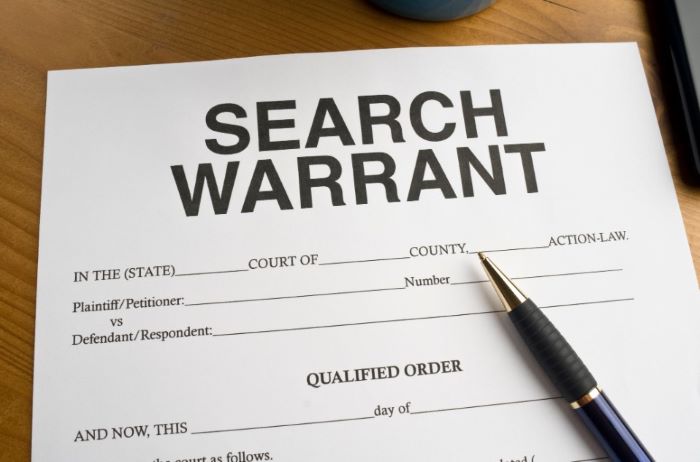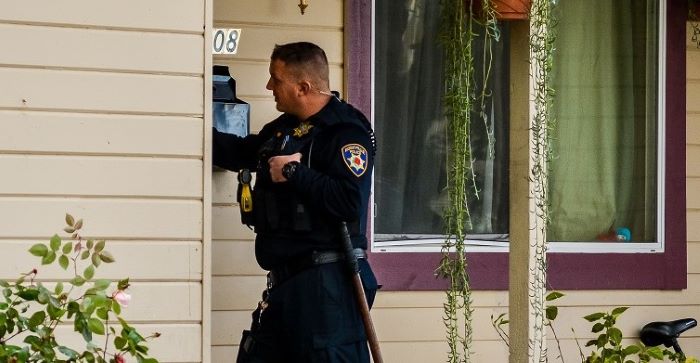When facing criminal charges, evidence is the most significant aspect of the case. Without evidence, they have no case. Therefore, law enforcement officers use tools like a search warrant to be able to find and gather evidence to support the prosecution. But many law enforcement officers, intentionally or not, can be guilty of unreasonable search and seizure.
If you’re on the receiving end of this violation, know you can pursue a case against them for violating your rights.
So, what can you do in the event of unlawful search and seizure from NC law enforcers? This guide will help you understand your rights so you can protect yourself.
What is the Law on Search and Seizure in NC?
Law enforcers cannot forcibly enter a home or private property to search for evidence linking you to a crime. If they do, these law enforcers have violated your rights and could face prosecution.
If you’re an NC resident, you must know about the existing NC law on search and seizure to prevent this from happening to you. The NC Law abides by the US Supreme Court ruling on police-citizen encounters. It includes brief seizures that must be supported with probable cause. The critical point here is ‘probable cause’ since law enforcers cannot force you to have your home or property searched, looking for evidence, without sufficient cause.
The NC Law observes the Fourth Amendment that gives US citizens the right to feel secure in their homes with their possessions. This right is only superseded by a search warrant, which grants police officers the right to search your home or person. For this reason, the North Carolina Constitution protects against unreasonable search and seizure cases.

What is Your Right Against Unreasonable Search and Seizure?
As mentioned, the Fourth Amendment is honored by the North Carolina Constitution.
It grants people the right to decline search and seizure from law enforcers if the latter cannot provide probable cause for conducting the search and seizure activity.
If this happens to you, it is considered unconstitutional as it violates the Fourth Amendment. There is also a potential consequence to any case for which the search and seizure is being conducted. In the conduct of illegal search and seizure, it is part of the “exclusionary rule.” It means that any evidence obtained illegally won’t be honored by the court and cannot be used as evidence for the case in question.
How Long is the Validity of a Search Warrant?
The North Carolina law states that the validity of a search warrant is 48 hours (or up to two days) from the time the court issued it. Even if a search warrant exists, you must check the document before allowing law enforcers to search your property or home.
If they present you with an expired search warrant, it is essentially invalid and cannot be used for its intended purpose. If the search is not executed within the 48-hour timeframe, it will be marked as “not executed” and will be void of its validity.
Are There Exceptions to the Police Search Without Warrant?
Numerous exceptions exist for a police officer searching without a warrant. They include but are not limited to the following:
1. With Your Consent
Law enforcers could search your home, property, or vehicle if you granted consent to the activity, even without a warrant. Some individuals consent because they want to clear themselves of any suspicion of involvement with specific crimes, especially if allowing the police to search their home or vehicle will help prove their innocence.
2. Traffic Stop
Individuals have less privacy when in a public place versus when law enforcers come into their homes asking to search. If a police officer stops you in traffic, they have the right to search you or your vehicle if they determine there was probable cause for doing so.
3. Exigent Circumstances
Certain cases are exempt from unreasonable search and seizure, such as when another person is in danger of harm. It gives law enforcers the right to enter a home or property without a warrant.
4. Plain View
Aside from being stopped in traffic, law enforcers have the right to search you or your property (such as a vehicle) if you are suspected of criminal activity. The search is allowed if conducted in plain view, and the vehicle or person involved is not in public sight.
5. Hot Pursuit Operations
A person fleeing police officers and entering private property can be searched and seized. By refusing to cooperate with law enforcers, they have already given up their privacy rights and those to unreasonable search and seizure.

What to Do During Unreasonable Search and Seizure?
Now that you know about your rights and the exceptions to a search warrant, you must understand how to handle this situation. How you respond to law enforcement officers when they approach you with the possibility of searching your property or home is critical to prevent the violation of your rights.
These are essential questions you must ask the officers on the scene before they search you:
- Do you have a search warrant?
- What is the validity of your search warrant?
- What is the search for?
- Is there a reasonable cause for searching my home or property?
- Can you read me my rights?
- Can I speak to my lawyer?
How Can an NC Attorney Help with Unreasonable Search and Seizure Case?
An unreasonable search and seizure case that results in criminal charges can be a serious matter. Therefore, you must avoid warrantless searches of your home and property as it is part of your rights to do so. In addition, the NC law clearly states this is unlawful, so you must contact an experienced attorney to help you.
A criminal charge under your name can seriously impact your personal and professional life. Contact an attorney in NC so you can uphold your right and have the case potentially filed against you dropped.


